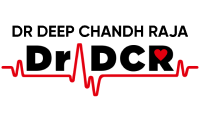Specialities Of Doctor Deep Chandh Raja .S

Cardiac Arrhythmias
The heart normally beats in a regular, coordinated pattern, but in arrhythmia, the heart may beat too fast, too slow, or irregularly. Some arrhythmias can cause serious health problems, such as stroke, heart failure, or cardiac arrest.
View More
Pacemaker Implantation
Our heart has a natural, built-in pacemaker– the sinoatrial node, that works like an electrical system to control your heartbeat. When the heart's natural pacemaker ceases to function properly, a small, battery-operated device is surgically implanted to help regulate the heartbeat and rhythm.
View More
HIS Bundle Pacing & Conduction System Pacing
HIS bundle pacing is an alternative to traditional cardiac pacing technique that involves placing the pacemaker lead directly on the bundle of His, a specialized conduction pathway in the heart's electrical system, to achieve synchronized heart rhythm.
View More-implantation.png)
Defibrillators (ICD) Implantation
An implantable cardioverter-defibrillator (ICD) is a device that is implanted under the skin of the chest to monitor the heart's rhythm. If the heart rhythm becomes too fast or too slow, the ICD sends out electrical signals in the form of shocks, that help bring the rhythm back to normal, thus saving one’s life.
View More.png)
Cardiac Resynchronization Therapy (CRT)
Cardiac resynchronization therapy (CRT) is a treatment option for people with heart failure who have an abnormal heart rhythm known as ventricular dyssynchrony. This condition occurs when the ventricles, the lower chambers of the heart, do not contract at the same time, leading to a less efficient pumping of blood throughout the body.
View More
Leadless Pacemaker Implantation
The heart normally beats in a regular, coordinated pattern, but in arrhythmia, the heart may beat too fast, too slow, or irregularly. Some arrhythmias can cause serious health problems, such as stroke, heart failure, or cardiac arrest.
View More&radiofrequency-ablation (RFA).png)
Electrophysiology Study (EPS) & Radiofrequency Ablation (RFA)
The heart normally beats in a regular, coordinated pattern, but in arrhythmia, the heart may beat too fast, too slow, or irregularly. Some arrhythmias can cause serious health problems, such as stroke, heart failure, or cardiac arrest.
View More
Atrial Fibrillation Management
The heart normally beats in a regular, coordinated pattern, but in arrhythmia, the heart may beat too fast, too slow, or irregularly. Some arrhythmias can cause serious health problems, such as stroke, heart failure, or cardiac arrest.
View More
Ventricular Tachycardia Treatment
The heart normally beats in a regular, coordinated pattern, but in arrhythmia, the heart may beat too fast, too slow, or irregularly. Some arrhythmias can cause serious health problems, such as stroke, heart failure, or cardiac arrest.
View More
Sudden Cardiac Arrest
The heart normally beats in a regular, coordinated pattern, but in arrhythmia, the heart may beat too fast, too slow, or irregularly. Some arrhythmias can cause serious health problems, such as stroke, heart failure, or cardiac arrest.
View More



